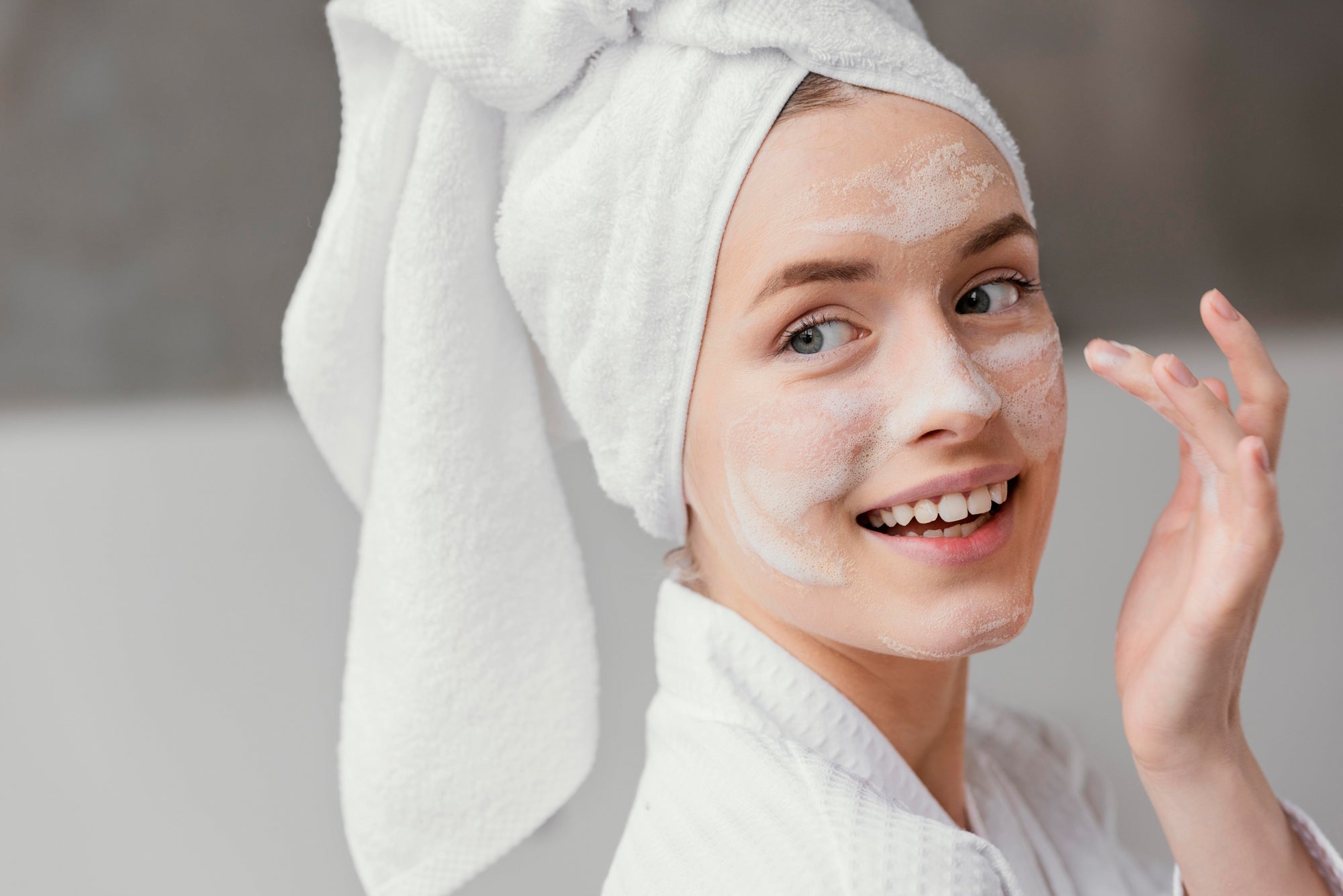Free Shipping Across Malaysia

In any skincare routine, cleansing is always the first step. We know it feels good to have clean skin, but how important is regular cleansing for healthy skin, and how often should we cleanse? What is the appropriate cleanser? What is the difference between cleansing and exfoliating? Here are some answers that will help you stick to a regular skin care routine.
Our skin has natural processes of renewal that happen every day. During these processes, dead skin cells are pushed to the surface where new skin cells replace them. Your face is always exposed to the outside environment, so over the course of each day, your skin collects dirt and other pollutants on its surface.
Knowing this, it is easy to answer the question, how many times should we cleanse our skin a day?
Cleansing your face in the morning is beneficial because of the natural renewal process that occurs while you sleep. Cleansing your face when you wake up helps remove toxins, dead skin cells, and excess oil that your skin may have secreted overnight. The right cleanser will balance your complexion and provide a fresh surface to start the day allowing for better penetration of your skin care products.
In the evening, it is important to wash off the makeup, dirt and grime that your skin collects throughout the day, plus some physiological changes in the skin will occur overnight and any surface impurities will prevent the skin from regenerating properly because the skin needs the oxygen present in a clean face to do it properly.
But what is the difference between cleaning and exfoliating?
Cleansing removes dirt, makeup and other skin impurities. Exfoliation removes dead skin cells that can clog pores and lead to acne breakouts. Cleansing first may remove dirt at the surface level, allowing for better access to dead skin cells when exfoliating.
What is the appropriate lotion?
The important thing is to choose the right type of face wash.
Alpha Hydroxy Beta Hydroxy Purifying and Exfoliating Cleanser This dual action cleanser helps gently and effectively exfoliate the skin while providing a deep cleanse as it gets rid of dead skin cells and reduces pore size. Tightens the skin and increases its freshness without stripping it of its essential oils. Facial cleansing helps manage the skin's pH levels, allowing for adequate water retention and retention.
What will happen if you stop washing?
If you stop washing your face completely, it will clog your pores leading to acne breakouts. The skin may also experience a combination of extreme redness, dryness, and irritation due to a lack of hydration. Finally, your skin will generally look dirty, greasy, and noticeably aged.
You know all the amazing skin care products you can't live without? But if you don't cleanse your skin properly - they can't do anything. When you skip scrubbing off the dead skin cells build-up it also impairs the ability of all other skincare products to absorb properly into the skin.